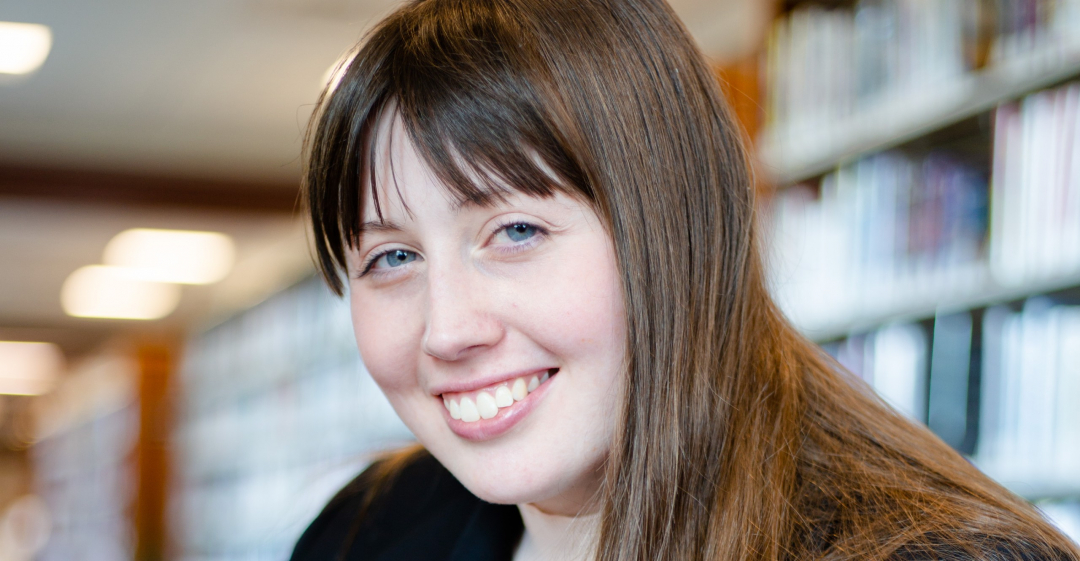“I wanted to do so much more.”

What work were you doing previously?
I was a full-time ghostwriter, writing articles for businesses.
I took on all sorts of projects, from automotive to supply chain.
What are you doing now?
I help growing businesses and startups get up and running with strategic content.
My goal is to help my clients outgrow me, which means I’ve done all that’s necessary to get them on their feet and then I refer them to a dedicated content marketer, content strategist, etc. so they can begin building a full-fledged team.
They often continue contracting me as a writer once they have someone in place to keep all that strategic work going around-the-clock.
When was the moment you decided to make the change?
A few years in, article ghostwriting was starting to become draining.
More and more clients were coming to me with big projects but I felt they were difficult to complete because the clients often cared more about links and keyword density than their readers.
They would sacrifice readability for so-called “best practices”, like using very short sentences or very short paragraphs, which just didn’t flow well.
Or they’d have me add all sorts of additional sub-headers to make the article longer, when I knew based on keyword search intent that the reader would just want a quick answer.
I also found them pouring a lot of money into keywords and topics that truly didn’t align with the business outcomes they told me they wanted to achieve. They were simply misguided. They had part of the equation right, but couldn’t see the big picture.
I was able to speak with a few clients and help them take a better approach. That’s kind of when it clicked that I wanted to do so much more than writing.
Why did you change?
I think most writers would agree that it’s not inspiring to work on a project when it doesn’t seem to have a clear-cut purpose.
We ultimately write for the reader, and if clients care more about catering to search engines, then it stands in the way of our goal.
I didn’t want to become yet another person pumping out articles that danced around the point for the sake of word count and keywords.
I also didn’t like seeing my well-intentioned clients pour thousands of dollars into content that I knew wasn’t going to do what they wanted it to do for them. I truly believe that content marketing can be a win-win for readers and businesses when it’s done right.
Helping those few clients who seemed like they were starting to go astray got me so excited. It really confirmed the suspicions I had all along that I didn’t want to just create the content, but help orchestrate the bigger picture.
Are you happy with the change?
Yes!
I couldn’t be happier with my current career. It is consistently challenging and there is always something new to learn.
What do you miss and what don't you miss?
I enjoy collaborating with people and learning how they think, which was a big part of being a developmental editor.
I will always miss taking a manuscript that they’ve poured their heart into and helping them make it even better. Hearing my clients tell me “That’s exactly what I was trying to say!” after they’ve mulled over a chapter for weeks, or “You’ve found my voice!” made me smile.
Strategic writing is collaborative, but in a different sense. Unlike with a book, there’s rarely a big prize to be had when everyone can celebrate the project’s completion – the strategy itself is forever on-going.
How did you go about making the shift?
I’d already been learning about SEO and digital marketing.
I was starting to plan content for my clients like a content strategist after doing all the foundational work that a content marketer would do, like building personas and understanding the customer journey. Then I'd execute those plans just like a writer. So, I adopted the title of “Strategic Writer.”
But making the shift was tough because I couldn’t just start turning my ghostwriting clients away.
For about six months, I was juggling my same workload as an article ghostwriter while asking all of those clients what their long-term plans and goals were. That piqued the interest of a few of them.
It took weeks of back and forth with each one to help educate them in many ways on what content marketing was and why they needed a strategy.
Once I had a few onboard, I was able to move from charging per word to charging per hour, and even a monthly retainer.
While it was a lot of work during that transitional period, my income was immediately steadier. My work became much more evenly paced and my pay became higher with a more predictable schedule, which really led to all-around improvements in every aspect of my life.
How did you develop (or transfer) the skills you needed for your new role?
For the three years that I worked exclusively as a ghostwriter, I was still learning about digital marketing and SEO in my free time to help better support my clients.
Content marketing isn’t a “learn on the job” thing, so I’m glad I took that initiative and started early, even though I hadn’t really thought long-term about the work I wanted to do just yet.
I leveraged all the free information I could find – courses, webinars, YouTube videos, books.
There is so much information out there for anyone willing to invest the time to learn about content marketing and SEO.
Think twice before buying into courses and “mastermind groups.” Most of what you need to know is available for free and the rest is learned through hard work.
If you want to invest in something, go through a certificate program instead and then you have something to add to your resume.
What didn’t go well? What wrong turns did you take?
I definitely think that the transition could have happened earlier.
For me, it was a confidence issue. The “imposter syndrome” is very real, especially in the world of freelancing.
I also should have had the confidence to charge more for my services right out of the gate. Despite years of knowledge, I was unsure of myself. That issue then took a couple of years to fully correct across all of my clients.
How did you handle your finances to make your shift possible?
I worked long hours.
I was working seven days a week for months so that I could continue article ghostwriting at my normal pace and establish myself as a strategic writer on the side.
I didn’t slow down on the ghostwriting portion until I was confident my new domain could replace that income stream completely.
What was the most difficult thing about changing?
Having to say goodbye to many of my long-term clients who had come to me for articles but either didn’t want to or couldn’t afford to look beyond the processes they had in place.
We left on good terms and I’ve kept in touch with a few of them, but they were fantastic people with wonderful businesses, so I miss hearing about their milestones and helping with their projects.
What help did you get? 
Most people are so willing to help you for nothing in return.
It wasn’t until a couple of years ago that I got on LinkedIn and began building my network. Once I found myself engaging in online communities and interacting with other writers and marketers, I found that my learning accelerated tenfold.
My confidence got a boost too, just from seeing other people affirm that I was on the right path.
What resources would you recommend to others?
I’d highly recommend that you connect with people in your field on LinkedIn, and just ask questions.
If you’re a freelance writer looking for mentorship, I founded a community last year called the Society of Writers. Everyone is welcome to join.
What have you learnt in the process?
That people are so willing to help!
Had I had the courage to reach out sooner to people in my field, I could have grown so much faster. Successful people are so eager to pay it forward.
What do you wish you'd done differently?
I wish I'd had the confidence to charge what I was worth from day one.
What would you advise others to do in the same situation?
Freelancing can be very isolating, especially if you tend to be introverted like myself.
I'd definitely suggest surrounding yourself with inspiring people, even if it’s in a virtual sense, like on LinkedIn.
It’s also so worthwhile to sit down and reflect on your work every once in awhile and make sure you’re still on the path you want to be on.
Lastly, find the confidence in yourself to charge what you’re worth and go out there to find opportunities. Lack of confidence will hold you back more than anything.
To find out more about Sydney's services, visit: https://sydneychamberlain.com
What lessons could you take from Sydney's story to use in your own career change? Let us know in the comments below.



